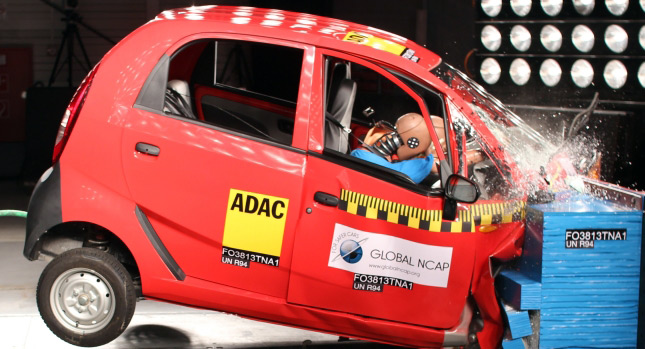Airbags are still seen as an optional extra in India, especially when the cars in question are small and popular models that an increasing number of people are now able to buy.
However, most of these cars have gone out of production in their respective home markets (they are older models), and are now manufactured locally – in order to keep costs down, airbags are among the first to go out of the door.
In the case of some vehicles, though, the fitting of airbags would not really improve their safety credentials, as their structure would still contort in a crash, so much so that it would be a useless exercise. Several of these models were recently independently crash tested, and the findings were more than worrying.
The models in question are: VW Polo, Maruti Suzuki Alto 800, Ford Figo (renamed and restyled old-gen Fiesta), previous-gen Hyundai i10 and the Tata Nano – the Suzuki is the country’s best seller.
All these cars together account for 20 percent of the entire Indian new car market, so they make up a hefty percentage.
Out of all the vehicles frontally tested at 40 mph or 64 km/h by Global NCAP, the only two with stable structures were deemed to be the Polo and Figo. The former was the only one to actually pass the crash test, but only with the two optional airbags fitted.
Max Mosley, Chairman of Global NCAP, was quoted as saying:
“India is now a major global market and production centre for small cars, so it’s worrying to see levels of safety that are 20 years behind the five-star standards now common in Europe and North America. Poor structural integrity and the absence of airbags are putting the lives of Indian consumers at risk. They have a right to know how safe their vehicles are and to expect the same basic levels of safety as standard as customers in other part of the world.”
PHOTO GALLERY










